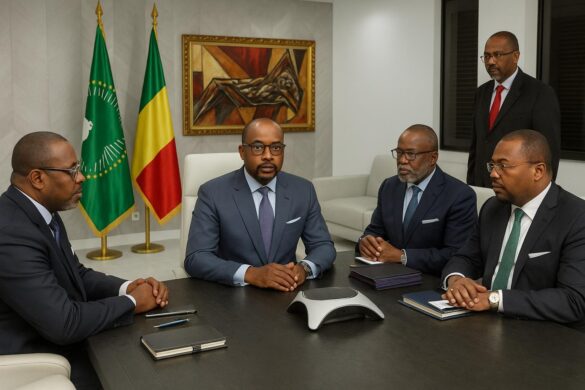Historic Signing of Bilateral Investment Treaty
A new bilateral investment treaty between the Republic of the Congo and the Russian Federation has been signed, officials in Brazzaville confirmed. Conducted via video conference, the agreement promises the mutual promotion and protection of capital flows, signaling a calibrated step toward deeper economic interdependence.
Minister of International Cooperation and Public-Private Partnership Promotion Denis Christel Sassou Nguesso signed the document in Brazzaville, while Russian Minister of Economic Development Maxim Reshetnikov executed the counterpart documents in Moscow, illustrating the hybrid diplomacy increasingly favored in the post-pandemic investment landscape.
Legal Protections at the Heart of the Agreement
Officials described the treaty as a “cornerstone” for businesses looking to expand beyond their domestic markets. By locking in clauses for fair and equitable treatment, the text aims to protect investors from arbitrary measures, expropriation without compensation, or discriminatory barriers that can erode confidence and delay project financing.
The agreement also references the free transfer of profits and repatriation of capital, provisions largely aligned with Congolese investment law and Russia’s network of bilateral treaties. Arbitration mechanisms rely on internationally recognized venues, offering a neutral forum should commercial disputes escalate.
Opportunities for Diversified Growth
For Brazzaville, the signing complements ongoing efforts to attract diversified financing beyond hydrocarbons. Government data shows non-oil foreign direct investment has steadily increased since 2021, with agribusiness, timber processing, and digital infrastructure attracting attention from partners in Asia, Europe, and the Gulf, alongside traditional allies.
Russian firms, meanwhile, are exploring new anchor points on Central Africa’s Atlantic coast. Officials in Moscow have recently highlighted opportunities in mining services, railway modernization, and cold chain logistics, building on technical expertise already deployed in other CEMAC markets since 2019.
In a brief statement, Mr. Reshetnikov said the pact “creates predictable conditions for the business communities and will unlock joint ventures that generate employment in both nations.” His Congolese counterpart emphasized the agreement’s alignment with the national development plan targeting emerging economy status by 2030.
Analysts note that bilateral trade, although modest at just over $60 million last year, offers significant room for growth. Fertilizers, grains, and heavy machinery currently dominate trade volumes, but energy services and information technology are identified as potential breakout segments once the legal assurances translate into concrete deals.
Next Steps: Forums and Ratification
The Congolese Chamber of Commerce announces that a Russia-Congo business forum is being prepared for early 2024 to connect investors with local partners. It would follow the model of previous meetings with Turkey and the United Arab Emirates, which produced memoranda of understanding in agritech and ports.
Legal experts consulted in Brazzaville stress that the treaty must now undergo ratification procedures.
